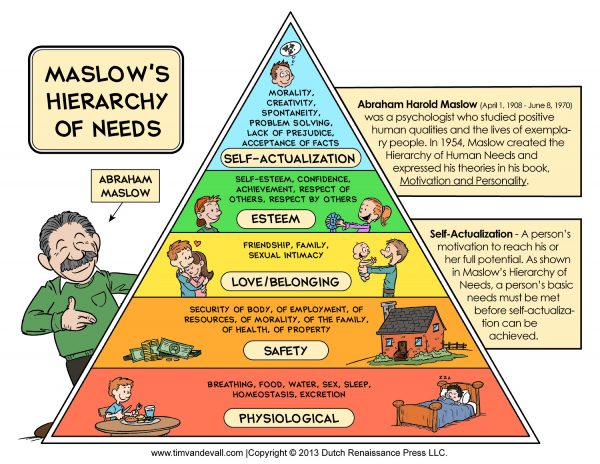| …as a survivor and a bystander of family violence, desire was hard to trust. … So all of my erotic self was wrapped in ‘how do I associate with pleasure and desire without fear, without losing control, without being harmed?’ I really had to walk out of a space that allowed for me to unravel and unpack those things as separate so I could define my sexuality and my erotic self in relationship to something that did not have to be violent, to understand that desire to be loved and to love your family wasn’t always mired with violent pasts but could begin again with new, healing destinies. |
| … |
| …This is about structural violence too and about how I relate to myself through desire when I am deeply undesirable, I am expendable, and I am only here for labor or reproduction? And… then what is my erotic self in that, when you’re devoid of being able to define yourself outside of capitalism and white supremacy? ~Cara Page, in adrienne maree brown’s Pleasure Activism |
There once was a time in my life when I considered myself to be relatively asexual. I mean, I liked to dress up and look sexy, but a truth was, I don’t know that I ever actually felt sexy and I definitely know that I didn’t really care one way or the other about the act of sex itself; it was nice and fun and all and also eh.
Looking back at the me of my teens, twenties, and even thirties, I can say that was pretty much my attitude towards any type of pleasure: I could dress the part, even enjoyed dressing the part to an extent, but when it came right down to it I had no interest or strong feelings about it either way. Wearing my clothes wasn’t exactly pleasurable, I didn’t really enjoy food or eating (though I did eat plenty), I generally hated my homes and didn’t take a lot of pleasure being in them. I would zone out on TV, not really paying attention or enjoying what I watching. I didn’t read a lot, and what I did I don’t know that I really paid attention either.
I lived life through the motions. Not really being present, definitely not being in my body. I could “take or leave” pleasure, because frankly, I couldn’t actually feel it. I didn’t cry a lot, but I didn’t laugh a lot either.
I don’t know how young I was the first time I left my body, and it was definitely by the age of four and may have been younger. Between the physical violence of my mother and the sexual abuse from various family members and friends, I learned very early on that being in my body was not safe, and was not a place I wanted to be. To be in my body was to be in pain, in fear, confused.
When we add to this being told for as long as I can remember by my father that he wished I was a boy, which was compounded over the years by our culture stating quite clearly that women and girls were less than, of course I didn’t want to be in my body. Of course I hated my body and being it.
Not being in my body meant that I could avoid pain, or so I thought. But what I didn’t understand then was that while I was doing all I could to not feel the painful sensations and emotions of my body and life experience, I was also missing out on any type of pleasure that came my way.
After the birth of my daughter, almost 12 years ago now, I started on a journey of being the mother, the parent, I always wished I had. This lead to me truly beginning my own trauma work, which eventually led me to somatic and body-centered mindfulness practices. I entered into this work, not to feel pleasure, or even to be in my body, or for any reason for myself. I entered into this work for my daughter, so she could have a different childhood and life than mine.
Here’s the thing though, at the end of the day it doesn’t actually matter why I entered into this work. It doesn’t matter if it was for her or for me, if I had any intentions of actually being in my body or not, or feeling pleasure or not. I entered into the work, and the rest, as they say, is history.
While it is true that I experienced physical abuse as a child, and that definitely impacted my relationship with my body and being in it, I know that the sexual trauma I experienced, both in childhood and young adulthood, also has its impact, and perhaps a greater impact on my relationship with my sexuality and with pleasure (sexual and non) itself.
When we don’t feel safe within our own bodies, when “sex” is used as a weapon against us, especially at a very young age when our brains and neuropaths are beginning to develop, it only follows that we would have a very complex relationship with our sexuality and with pleasure.
Sexual trauma impacts us in many ways. It can cause anxiety, depression, suicidal ideation. It can have us live in a dissociate state, outside of our bodies, outside of the present moment. It can have us feeling unsafe in our bodies, in our surroundings, and in our relationships. Because of all this it can prevent us feeling happiness, joy, and pleasure. Which I now believe to be perhaps the most devastating impact of all.
Learning to come into our bodies is not easy and frankly I don’t even think it’s “fun.” It is hard work, requiring intention, patience, and self compassion.
And, in order for us to learn to experience pleasure, we need to come into our bodies. Pleasure, including happiness, including joy, including truly savoring the food we eat, feeling the softness of our clothes, sheets, blankets, smelling the complexities of flowers. Pleasure including being present in the moment, enjoying our loved ones and the beautiful experiences life has to offer us. And yes, pleasure including our sexuality and the acts of sex itself.
But coming into our bodies is only part of this work. An important and large part, yes, but only a part all the same.
There is a deeper aspect of pleasure that we seem to associate with only sex and our sexuality, and that is the pleasure of relationship: deep, vulnerable, honest, relationship. To have these types of relationships, be they sexual or not, we need to trust, ourselves and others. Trauma, and especially childhood trauma, destroys our ability to trust those we love, those who love us because as children those who were supposed to care for us, to protect us, betrayed us instead.
This betrayal is not an easy thing to undo. This betrayal prevents us from allowing ourselves to deeply love and be deeply loved. It stops us from trusting others with our darkest shadows as well as our brightest lights. It keeps us hiding, putting on the appearance of happiness or connection or joy while we are only going through the motions. It keeps us disconnected, feeling alone, and stuck in patterns and cycles that are ultimate harmful to ourselves.
Learning to come into our bodies, learning to trust the messages it is giving us as well as to trust that we can experience all the sensations and emotions in our bodies without harm coming to us, helps us learn to trust other aspects of ourselves which in turn helps us to learn to trust other people (and to learn to know who to trust and who not to).
Humans are social creatures. We are wired for connection, for belonging, for love. To experience the pleasure of being in an honest, vulnerable relationship may be one of the greatest experiences our lives as humans has to offer. It can also be one of the most terrifying experiences as we learn what it means to be ourselves, to be comfortable with who we are, to be present in time, space, and relationship, and to allow ourselves to be truly seen as we also learn to truly see others.
That fear though, that is our trauma being in control and keeping us in those harmful patterns and cycles. Being brave isn’t easy, and in the end, I do believe it is worth it.
…
To subscribe to my weekly newsletter go here.
To learn about my six month Trauma Informed Embodiment™ for Sexual Trauma Survivors go here. The next cohort begins April 15.

